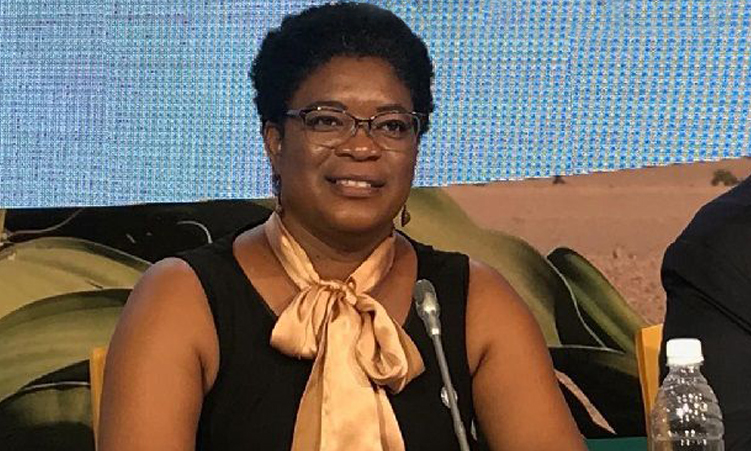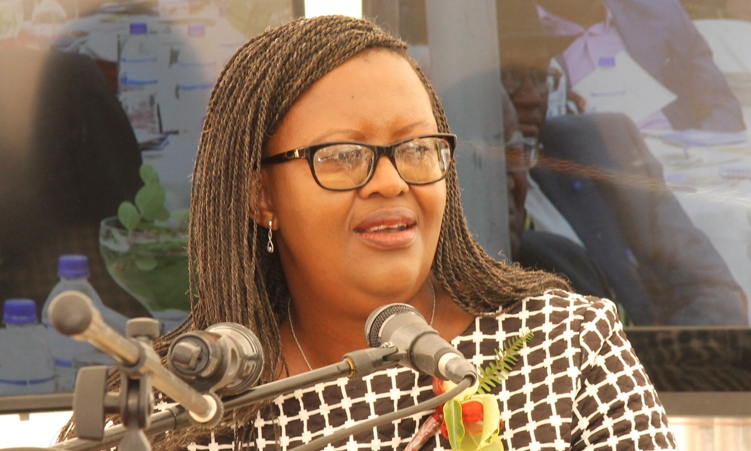The minister of presidential affairs Christine //Hoëbes is pushing for DNA tests to be made mandatory and accessible in response to the many children in the country being fatherless because men refuse to acknowledge paternity.
//Hoëbes said this while commenting on the justice ministry’s budget in parliament on Tuesday.
“I am proposing that we look into measures on how to make DNA testing more accessible, as well as measures on how to bring this father to the table when he refuses,” she said.
//Hoëbes said DNA testing is good because it helps both the mother and father gain legal clarity.
“You will be able to tell her that you said that the child is not yours and she must go look for the father. It will also help the mother to find out whether this person who is denying the baby is really the father of the baby,” //Hoëbes said.
She said measures must be put in place to subsidise DNA testing fees.
She said often grandmothers and aunties are left caring for children without identities.
“The father denies and the mother is left with taking care of this child from birth until the age of 18. The mother has to see to it that shelter, food, healthcare and schooling are provided. All these on the shoulders of the mother,” //Hoëbes said.
According to //Hoëbes, the issue of fathers denying paternity has been normalised in society.
“As a minister of justice, I want to talk about this issue so that justice should prevail at the end of the day,” //Hoëbes said.
Fathers have made it a habit of denying paternity, which she said is unconstitutional and wrong.
“Article 15 [Children’s Rights] states that children shall have the right from birth to a name, the right to acquire a nationality and, subject to legislation enacted in the best interests of children, as far as possible the right to know and be cared for by their parents,” she said.
It appears people have moved away from that provision in the Constitution, said //Hoëbes.
“We are denying children their identity and their personhood. Their right to know who they are and the right to know where they are coming from,” //Hoëbes said.
When a father denies paternity, the woman is left with no option but to visit the maintenance court to inform the court who the child’s father is and that he is denying paternity.
//Hoëbes said the maintenance court will then compel the father to pay maintenance, whether he is the father or not because the mother said so.
“If the father still [insists] that he is not the father, some sort of DNA test will be done. It is only there that the true identity of the child will come out,” she said.
However, justice minister Yvonne Dausab said the question of paternity only comes in when a particular individual denies paternity.
Dausab said that there are also women who have accused men wrongly.
“There are examples where men had paid and kept the child for a very long time and it turns out that the child is not theirs,” Dausab said.
She said mandatory DNA testing will only make sense in two instances.
“It is either when one of the two parties is denying paternity. If a man, for example is unsure that the child is his and it also happens in very limited instances that women are unsure about the paternity of their child,” Dausab said.
When one partner indicates that they are unsure, they are normally the one that pay for the DNA test, Dausab said.
“And I know there is a cost challenge around that. What we also know is that over the years when there is an indication that both parties are unable to pay for the paternity test, then the Ministry of Justice carries the cost,” Dausab said.
Currently, Namibia has only two institutions that carry out paternity tests, the Namibia Institute of Pathology (NIP) and PathCare Namibia.
The costs at these institutions are similar, and this is not a cheap exercise, Dausab said.
Ministry of Health and Social Services executive director Ben Nangombe said this practice is done by those in need.
It was not a public healthcare issue, but a social welfare matter, Nangombe said.
“This practice is done at the discretion of whoever wants it. It is carried out at laboratories,” Nangombe said.
Stay informed with The Namibian – your source for credible journalism. Get in-depth reporting and opinions for
only N$85 a month. Invest in journalism, invest in democracy –
Subscribe Now!






